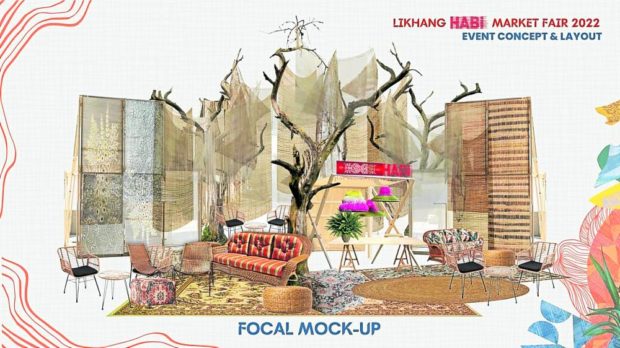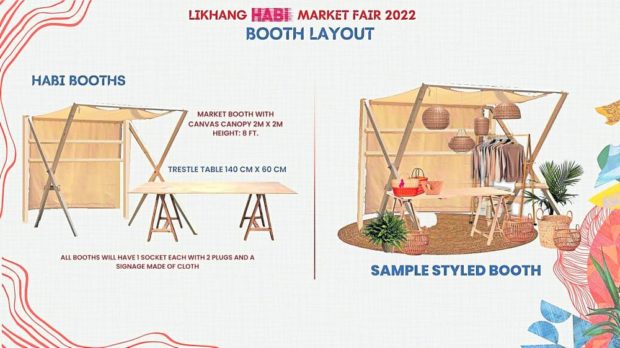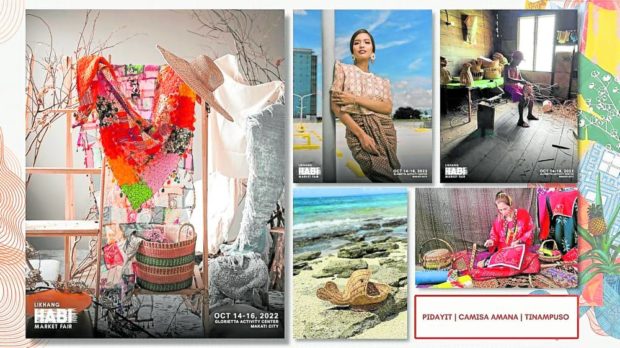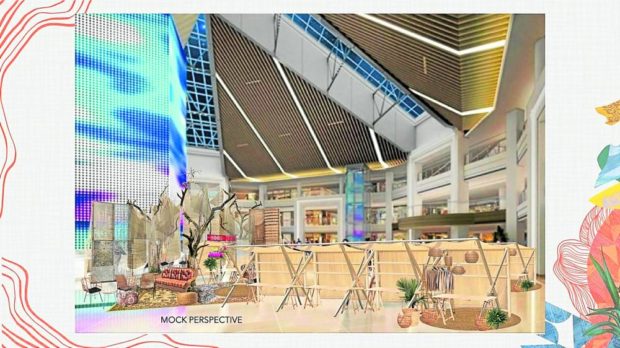Likhang Habi weaves another year to its history
Young entrepreneurs Kylie Misa and Yvette Gaston have anchored their business on the traditional woven fabric in Northern Luzon.
The millennial women—whose business of making and selling inabel-based products is just a side gig—have found a growing market for traditional Filipino woven fabrics and other products.
Inspired by a towel design from Turkey, Misa and Gaston started by making their own version using inabel sourced from traditional weavers in La Union. Today, their WVN Living has a full-range of home accessories and garments for men, women and even babies using inabel.
They have also branched out into personal care products using indigenous, organic raw materials.
The women complete the sustainability package by using organic materials like abaca for packaging. Natural fiber for packaging, instead of plastic, adds a little to the price of their products but their customers seem willing to pay extra for the health of the planet and the benefit of traditional weavers who supply their materials.
Many in their network of friends and colleagues are beginning to realize the value of organic, natural products. Even companies are starting to appreciate what WVN (stands for “woven”) offers and are buying the women’s limited edition creations as corporate giveaways.
PTC advocacy
Misa and Gaston are among the growing number of enterprising people who are reaping the fruits of the campaign of Philippine Textile Council (PTC) or Habi to revive Philippine weaving traditions and products and reignite interest in local handwoven textiles among Filipinos.
WVN is among the more than 60 vendors that will share the spotlight during the 12th Likhang Habi Market Fair on Oct. 14-16 at Glorietta Activity Center in Makati. The fair, an annual project of Habi, will showcase handmade pieces like woven fabric, ready-to-wear clothes, home accessories, locally made furniture and pottery, among others.
Traditional weavers and local artisans will be featured with the entrepreneurs who have found success in promoting and marketing their products.
The fair marks the return of Habi’s physical exhibit after two years of virtual shows because of the COVID-19 pandemic. Motif of this year’s show is “Sampayan.” Products will be displayed on stylized clotheslines.
After 12 years of dedicated efforts to revive and grow interest in local weave, PTC is gratified that local fabric is no longer seen only as material for costumes or formal occasions.
In the past two years, the market fair had gone online because of health restrictions. But council president Adelaida Lim says the two years without a physical show actually helped broaden the market for local weave and fabric.
When the council put online the products of its partners, interest from foreigners grew and the international market opened up. “We received orders [for our products] and we sold our books [on Filipino fabric],” Lim says.
Maribel Ongpin, PTC chair, admits that the last two years of lockdowns and quarantines because of the pandemic, as well as natural disasters that visited the Philippines, had taken a toll on the indigenous weaving industry. “So now we are trying to rehabilitate weaving centers [in strategic places].”
The annual Likhang Habi festival is an occasion for buyers and sellers to get to know each other. For sellers, it is an opportunity to see firsthand the market for their products. For buyers, it is a chance to see that the traditional Filipino weave are now more than just blankets and bedspreads, table runners and table cloth, wall hangings, napkins and place mats. —contributed INQ




